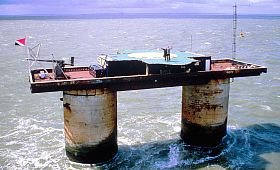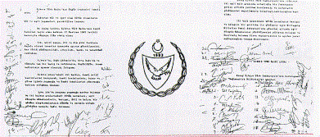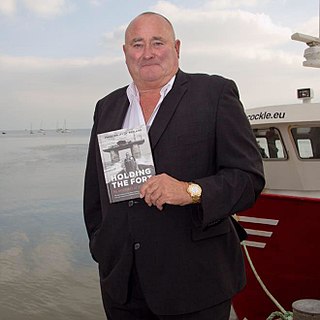Related Research Articles

A micronation is a political entity whose representatives claim that they belong to an independent nation or sovereign state, but which lacks legal recognition by any sovereign state. Micronations are classified separately from de facto states and quasi-states; they are also not considered to be autonomous or self-governing as they lack the legal basis in international law for their existence. The activities of micronations are almost always trivial enough to be ignored rather than disputed by the established nations whose territory they claim—referred to in micronationalism as macronations. Several micronations have issued coins, flags, postage stamps, passports, medals and other state-related items, some as a source of revenue. Motivations for the creation of micronations include theoretical experimentation, political protest, artistic expression, personal entertainment and the conduct of criminal activity. The study of micronationalism is known as micropatriology or micropatrology.

The Principality of Sealand is a micronation on HM Fort Roughs, an offshore platform in the North Sea approximately twelve kilometres off the coast of Suffolk, England. Roughs Tower is a Maunsell Sea Fort that was built by the British in international waters during World War II. Since 1967, the decommissioned Roughs Tower has been occupied and claimed as a sovereign state by the family and associates of Paddy Roy Bates. Bates seized Roughs Tower from a group of pirate radio broadcasters in 1967 with the intention of setting up his own station there. Bates and his associates have repelled incursions from vessels from rival pirate radio stations and the U.K.'s Royal Navy using firearms and petrol bombs. In 1987, the United Kingdom extended its territorial waters to 12 nautical miles, which places the platform in British territory.

Sovereignty can generally be defined as supreme authority. Sovereignty entails hierarchy within a state as well as external autonomy for states. In any state, sovereignty is assigned to the person, body or institution that has the ultimate authority over other people and to change existing laws. In political theory, sovereignty is a substantive term designating supreme legitimate authority over some polity. In international law, sovereignty is the exercise of power by a state. De jure sovereignty refers to the legal right to do so; de facto sovereignty refers to the factual ability to do so. This can become an issue of special concern upon the failure of the usual expectation that de jure and de facto sovereignty exist at the place and time of concern, and reside within the same organization.

Self-determination refers to a people's right to form its own political entity, and internal self-determination is the right to representative government with full suffrage.
A dependent territory, dependent area, or dependency is a territory that does not possess full political independence or sovereignty as a sovereign state and remains politically outside the controlling state's integral area. As such, a dependent territory includes a range of non-integrated not fully to non-independent territory types, from associated states to non-self-governing territories.

A self-proclaimed monarchy is established when a person claims a monarchy without any historical ties to a previous dynasty. In many cases, this would make them a pretender to the throne. The self-proclaimed monarch may be of an established state, such as Zog I of Albania, or of a micronation, such as Leonard Casley of Hutt River, Western Australia.
An associated state is the minor partner or dependent territory in a formal, free relationship between a political territory and a major party—usually a larger nation.

Diplomatic recognition in international law is a unilateral declarative political act of a state that acknowledges an act or status of another state or government in control of a state. Recognition can be accorded either on a de facto or de jure basis. Partial recognition can occur if many sovereign states refuse to recognize an entity as a peer. Recognition can be a declaration to that effect by the recognizing government or may be implied from an act of recognition, such as entering into a treaty with the other state or making a state visit. Recognition may, but need not, have domestic and international legal consequences. If sufficient countries recognise a particular entity as a state, that state may have a right to membership in international organizations, while treaties may require all existing member countries unanimously agreeing to the admission of a new member.

The declaration of Independence of the Turkish Republic of Northern Cyprus was a unilateral declaration of independence (UDI) from the Republic of Cyprus by the Turkish Cypriot parliament on 15 November 1983.

The sovereign citizen movement is a loose group of anti-government activists, litigants, tax protesters, financial scammers, and conspiracy theorists based mainly in the United States. Sovereign citizens have their own pseudolegal belief system based on misinterpretations of common law and claim to not be subject to any government statutes unless they consent to them. The movement appeared in the United States in the early 1970s and has since expanded to other countries; the similar freeman on the land movement emerged during the 2000s in Canada before spreading to other Commonwealth countries such as Australia, New Zealand and the United Kingdom. The FBI describes sovereign citizens as "anti-government extremists who believe that even though they physically reside in this country, they are separate or 'sovereign' from the United States".
The status of territories captured by Israel is the status of the Gaza Strip, the West Bank, the Golan Heights, and the Sinai Peninsula, all of which were captured by Israel during the 1967 Six-Day War.

On 17 February 2008, the majority of members of the Assembly of Kosovo, including Hashim Thaçi, and Fatmir Sejdiu, not acting in the capacity of PISG, declared Kosovo an independent and sovereign state. Kosovo was soon recognized as a sovereign state by the United States, Turkey, Albania, Austria, Germany, Italy, France, the United Kingdom, the Republic of China (Taiwan), and others. This triggered an international debate over whether Kosovo's unilateral declaration of independence had set a precedent in international law that could apply to other separatist movements, or whether it is a special case. The recognition of Kosovo's independence by 101 out of 193 UN states, according to many sources, has given fresh impetus to other separatist movements.
A sovereign state is a state that has the highest authority over a territory.

Michael Roy Bates, self-styled as Prince Michael of Sealand, is an English businessman and self-published author. He operates a self-proclaimed and unrecognized micronation called the Principality of Sealand, which he inherited from his parents Paddy Roy Bates and Joan Bates. He has claimed the title "Prince of Sealand" since the death of his father in 2012.

The political status of Nagorno-Karabakh remained unresolved from its declaration of independence on 10 December 1991 to its September 2023 collapse. During Soviet times, it had been an ethnic Armenian autonomous oblast of the Azerbaijan Soviet Socialist Republic. Following the dissolution of the Soviet Union, a conflict arose between local Armenians who sought to have Nagorno-Karabakh join Armenia and local Azerbaijanis who opposed this.
The Palestine Liberation Organization (PLO) declared the establishment of the State of Palestine on November 15, 1988. As of June 2024, the State of Palestine is recognized as a sovereign state by 145 of the 193 member states of the United Nations. It is a non-member observer state at the United Nations since November 2012. This limited status is largely due to the United States, a permanent member of the Security Council with veto power, has consistently used its veto or threatened to do so to block Palestine’s full membership to UN. The existence of a state of Palestine is recognized by the states that have established bilateral diplomatic relations with it. There is a wide range of views on the legal status of the State of Palestine, both among international states and legal scholars.
References
- ↑ Braw, Elisabeth (2010-06-29). "Unhappy with the government? Follow the lead of 'Sealand'". Metro News . Archived from the original on 2012-11-11. Retrieved 2015-04-16.
- ↑ "Melissa Etheridge's Ex "Blindsided" by Divorce". E! . July 3, 2010. Retrieved 2010-07-04.
- ↑ Markon, Jerry (July 4, 2010). "Sept. 11 terrorism trials still in search of a venue". Washington Post . Retrieved 2010-07-04.